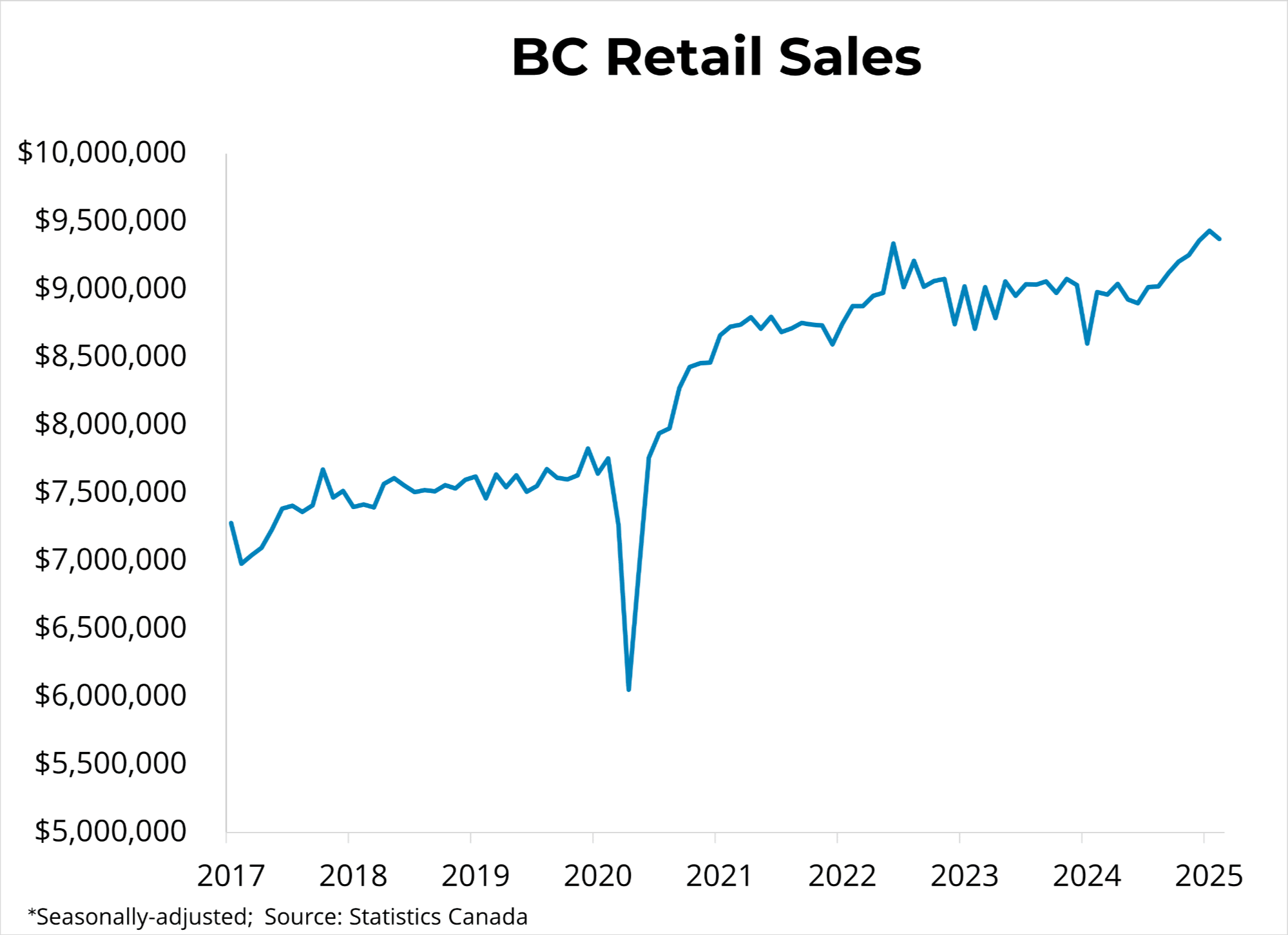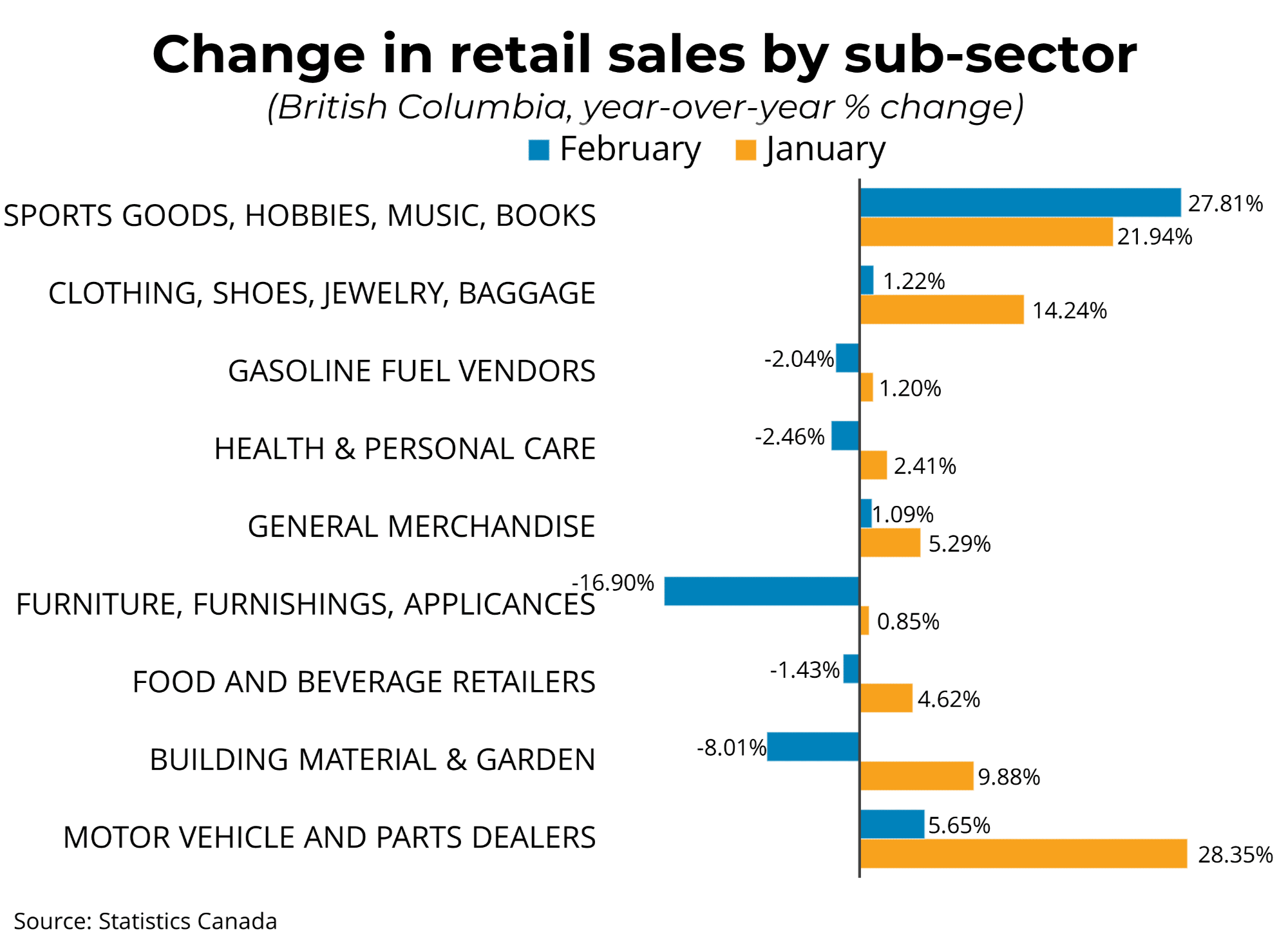How Retail Sales Trends Shape Real Estate Opportunities in British Columbia
As a real estate agent, I know how closely economic trends—like retail sales—tie into the housing market. February 2025's retail sales data offers valuable insights, particularly for understanding consumer behavior and planning ahead in the real estate landscape.
February Retail Sales Overview
Canadian retail sales dipped by 0.4% to $69.3 billion month-over-month but rose 4.7% compared to last year. In British Columbia, sales fell by 0.6% from January but increased 4.4% year-over-year. Notably, Vancouver's CMA saw a sharper monthly decline of 0.9%, though still achieving impressive 6.0% growth compared to February 2024.
For detailed insights, explore the full Canadian Retail Sales Report.
Key Trends from BC's Retail Charts
Analyzing retail data helps connect the dots to real estate market trends. The line graph tracking BC retail sales highlights resilience in consumer spending, despite periodic downturns. Retail recovery after the 2020 dip underscores an economic rebound that bolstered confidence in housing investments. However, fluctuations in recent months, including February's dip, signal caution among buyers.
The bar chart examining February's sectoral trends shows contrasting dynamics:
-
Growth in Sports Goods, Hobbies, Music, and Books (+27.81%) suggests consumers investing in lifestyle upgrades, reflecting a shift toward more home-centric activities.
-
Declines in Furniture, Furnishings, Appliances (-16.90%) indicate fewer new home setups—potentially hinting at slower home purchases or renovations.
Implications for BC's Real Estate Market
-
Consumer Spending Confidence: Year-over-year retail growth reflects stable economic conditions—a key factor that supports steady housing demand. However, February's decline in core retail sales could foreshadow short-term buyer hesitancy.
-
Localized Trends Matter: While BC's overall retail sales growth is promising, Vancouver's monthly decline highlights regional variations. Real estate agents must adapt strategies to local conditions, understanding that markets can experience different paces of recovery or slowdown.
-
Lifestyle Investments: Increased spending on recreational goods aligns with a trend toward integrating leisure spaces into homes. As agents, we can spotlight properties with features like home gyms or outdoor spaces that cater to these preferences.
Looking Ahead
With retail sales slowing for the second consecutive month, the housing market may experience parallel shifts as buyers adjust their spending priorities. Economic uncertainties—like tariffs mentioned in the report—underscore the importance of closely monitoring consumer confidence and adapting real estate strategies accordingly.
Navigating this evolving landscape requires not just data but actionable insights. By understanding the interplay between retail trends and real estate opportunities, we can guide clients toward informed decisions in 2025 and beyond.
To stay updated on market conditions, follow and register for an account at our Florencio Mende Jr - Victoria BC Real Estate Agent here.


Categories
Recent Posts










GET MORE INFORMATION

